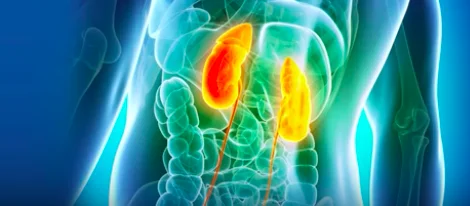
Your kidneys are bean-shaped organs that are located on each side of your spine, right below the rib cage. Healthy kidneys filter about a half-cup of blood every minute. It filters waste and excess water to make urine. Urine flows from the kidneys to the bladder through two thin tubes called the ureters.
Types of Kidney Stones
There are several different kinds of kidney stones, and some are more common than others. Calcium stones and uric acid stones are among the most common. Other types of kidney stones include struvite stones. These are typically caused by a bacterial infection, and cystine stones, which are associated with genetic conditions.
Because there is no single cause of kidney stones, there is no single strategy to prevent them. Physicians typically advise patients to focus on diet and lifestyle to reduce the risk. The goal is to make one’s urine less favorable for stone formation.
Not drinking enough fluids to dilute calcium and other substances in the urine is the most common risk factor for developing kidney stones. But there are others.
Eight risk factors for kidney stones:
- Inadequate fluid intake
- High sodium consumption
- Animal protein consumption
- Obesity and diabetes
- Family history
- Calcium supplements
1. Inadequate water intake. Low water intake is a common risk factor for developing kidney stones. If the urine is too concentrated (dark yellow in color), the concentrations of calcium and other stone-causing elements increases.
The amount of water one should drink daily varies depending on age, level of activity and climate. Most people are fine if they consume four to eight glasses of water a day. In addition to plain water, beverages like milk, juice and herbal teas and fruits like watermelon and vegetables like cucumbers are good sources of fluids.
2. High sodium consumption. Diets high in salt (sodium) increase the risk of forming many types of kidney stones. Many people think of salt and sodium as the same thing, but they aren’t. Salt is a mineral, comprised of sodium and chloride. The sodium found in salt is bad for your health.
Higher sodium intake causes the kidneys to put out more calcium into the urine, increasing the calcium concentration. Limiting your sodium intake has been shown to reduce the risk of forming new kidney stones.
3. Animal protein consumption. Animal proteins, particularly red meat, produce high amounts of acid in the kidney. This can cause an increase in calcium in the urine, which can lead to stones. Animal protein consumption is also associated with acidic urine, which can contribute to the forming of uric acid kidney stones.
4. Family history. Releasing large volumes of calcium in the urine runs in families. The vast majority of kidney stones are formed by excessive amounts of calcium in the urine. Having a relative who has had kidney stones caused by excessive calcium in the urine is a risk factor. The closer the familial relationship, the higher the risk.
5. Obesity and diabetes. Some research suggests that obesity and Type 2 diabetes can be risk factors for developing kidney stones. Having one or both of these conditions could change your urine composition, which could increase the risk of developing kidney stones.
6. Calcium supplements. If you’re consuming a normal or even mildly high amount of calcium through your diet, chances are there’s no need to worry about kidney stones. But boosting your intake of calcium with calcium supplements may increase the risk of developing kidney stones. If you take calcium supplements and are worried about kidney stones, talk to your doctor or your pharmacist.
Whatever your risk factors, it’s a good idea to do what you can to reduce your chances of developing kidney stones. One of the best things you can do is to drink plenty of water.


Recent Comments